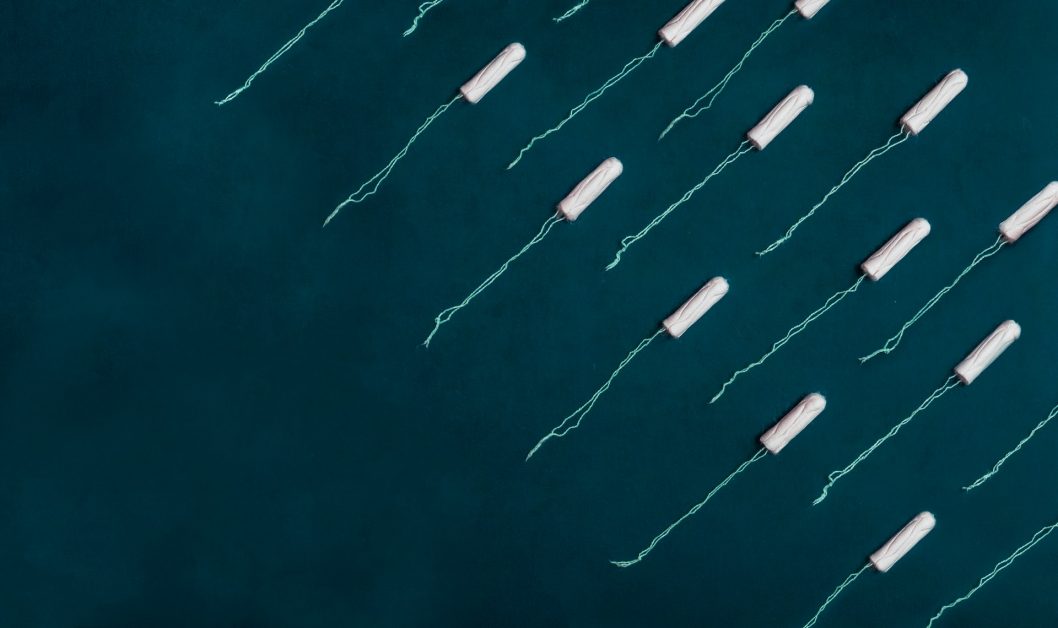Tampons are an essential sanitary product for women and girls who experience a monthly menstrual cycle.
There are many types of tampons on the market including organic tampons which are claimed to be more environmentally friendly than the conventional type, but is this true?
Since billions of tampons are produced across the world each year, it is important to know if they are biodegradable.
Sadly, this information is rarely disclosed, but we are going to look at several types of tampons and tell you whether they are biodegradable.
Do Tampons Biodegrade?
No, most tampons do not biodegrade naturally.
Tampons often contain plastic. This plastic is designed to make the tampon easier to insert and remove once used. The problem is that this plastic is not biodegradable and will not break down in a landfill site.
Some tampons are marketed as being organic, which usually means that they contain organic cotton. But some organic tampons are also free from plastic and use alternative materials for the applicator such as sugar cane.
This type of organic tampon is biodegradable so the key is to read the materials on the packaging.
Are Tampons Compostable?
Composting is becoming more popular, with many people also composting sanitary products.
Whether you can compost your tampons or not depends on the materials they’re made from.
Plastic should never be composted so any tampon that uses a plastic applicator should be disposed of.
Organic tampons that are free from plastic can be composted for use in your garden. They are made from plant-based materials and will biodegrade over time, adding nutrients to your compost heap and your soil.
How Long Does It Take for a Tampon to Biodegrade?
Organic tampons will decompose anywhere between the 6 month and 5 year mark. The variance in time taken is down to the conditions within the landfill environment. If conditions are favorable, they will break down faster.
Regular tampons will take hundreds of years to biodegrade as plastic does not break down naturally.
Are Tampons Bad for the Environment?
Tampons are a necessary sanitary hygiene product. They can be considered bad for the environment because of the large number that are used each year.
To make tampons better for the environment, companies can choose to produce organic tampons instead and reduce the amount of petroleum plastic used.
The packaging used also needs to be considered. Most plastic film is recyclable, but it isn’t always recycled as many of us throw it into the garbage.
Instead, tampon companies could produce a packaging film that is organic and will decompose along with the tampon.
The use of petrochemical additives plastics is problematic as they cause pollution, both to the land and bodies of water. If burnt, these materials can also produce toxic fumes and air pollution.
Nonorganic bleached cotton and rayon often contain herbicides and pesticides which can also cause problems to our eco system.
Are Tampons Flushable?
No, there is no such thing as a truly flushable tampon.
You should not flush tampons down the toilet because they are designed to expand when wet. This can eventually lead to blockages and can damage drainage systems.
Tampons do not break down in the way toilet tissue does which means these tampons will end up in your local water treatment plant.
The same goes for biodegradable tampons, never flush them away.
Can You Recycle Unused Tampons?
You can recycle some parts of some tampons.
Many waste recycling centers will not take used tampon applicators as they will have come into account with your personal areas.
Other recycling centers have special waste bins for sanitary products and will recycle your tampons if they are wrapped securely.
How to Dispose of Tampons Safely
Disposing of your used tampons safely is important. If they are made from plastic, dispose of them in your garbage bin.
For organic tampons, you have three options.
1. Composting
Composting is safe so we recommend composting your organic tampons in a suitable compost bin. They will eventually decompose with all the other organic material where it can then be used as mulch in your garden
2. Recycling
If you can find a recycling center that will accept tampons, this is a good eco friendly option for disposal.
Don’t forget to recycle the plastic packaging they likely came in.
3. Bin It
Binning your used tampons is also acceptable. If this option is easiest for you, feel free to throw them in the garbage.
Just make sure you wrap them properly to prevent them from coming apart. You can use a compostable bag for this task.
Conclusion
45 billion tampons and sanitary pads are used each year, so we need to make sure we are making them and disposing of them in a sustainable way.
The best we can do as consumers at this point is to buy eco-friendly tampons that are biodegradable. This will help reduce the amount of plastic tampon waste that ends up on our beaches and protect our environment.
